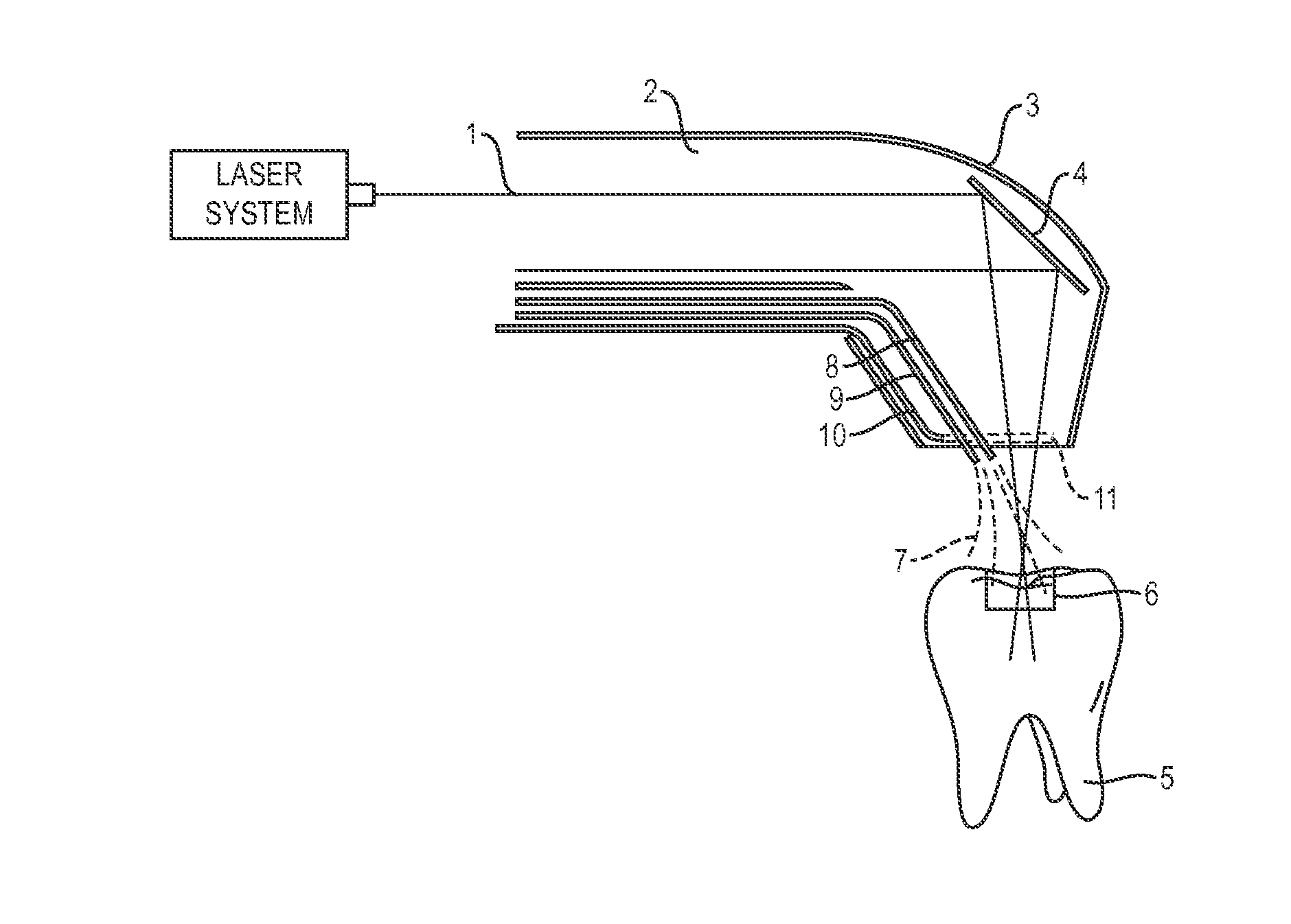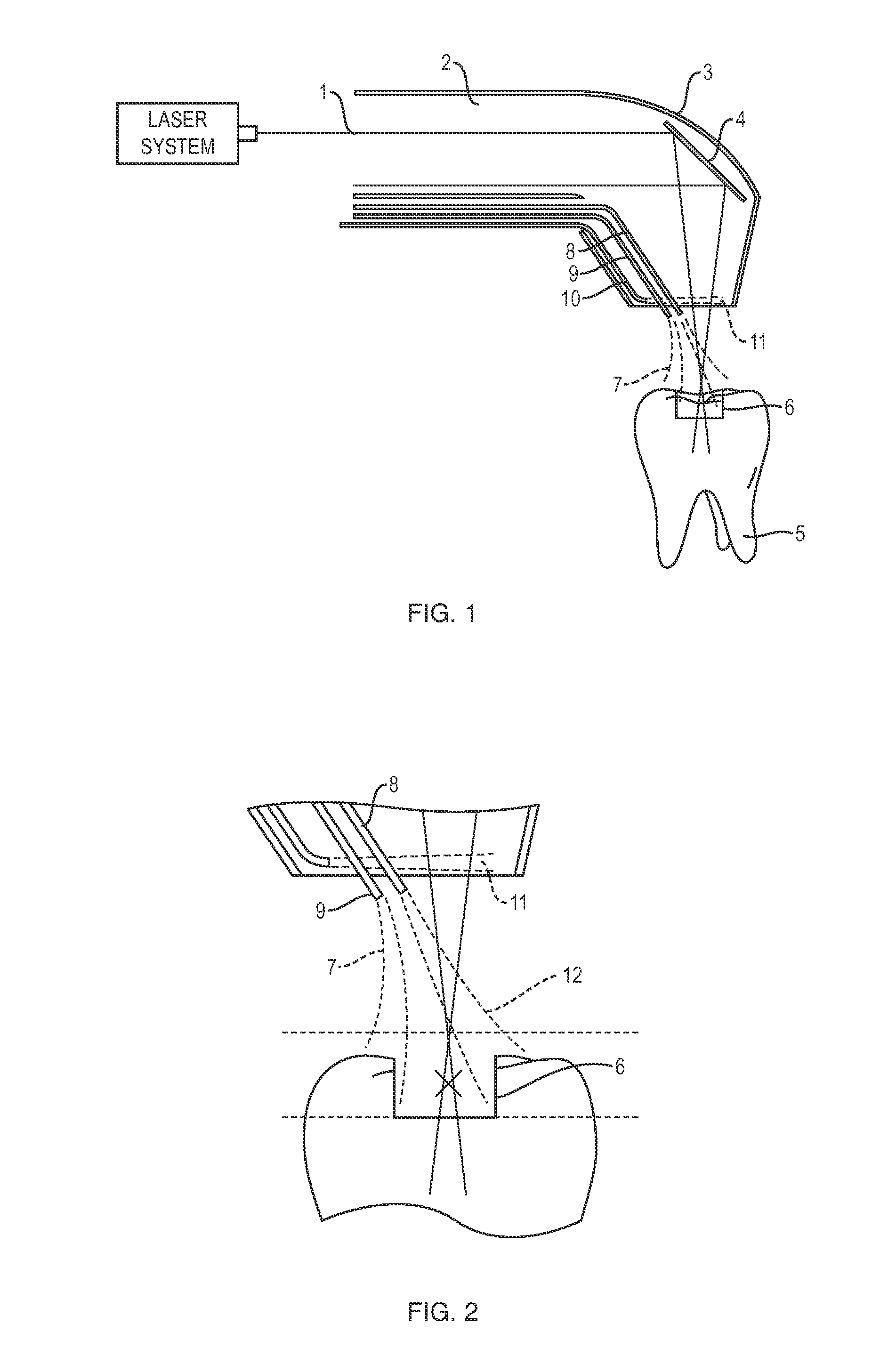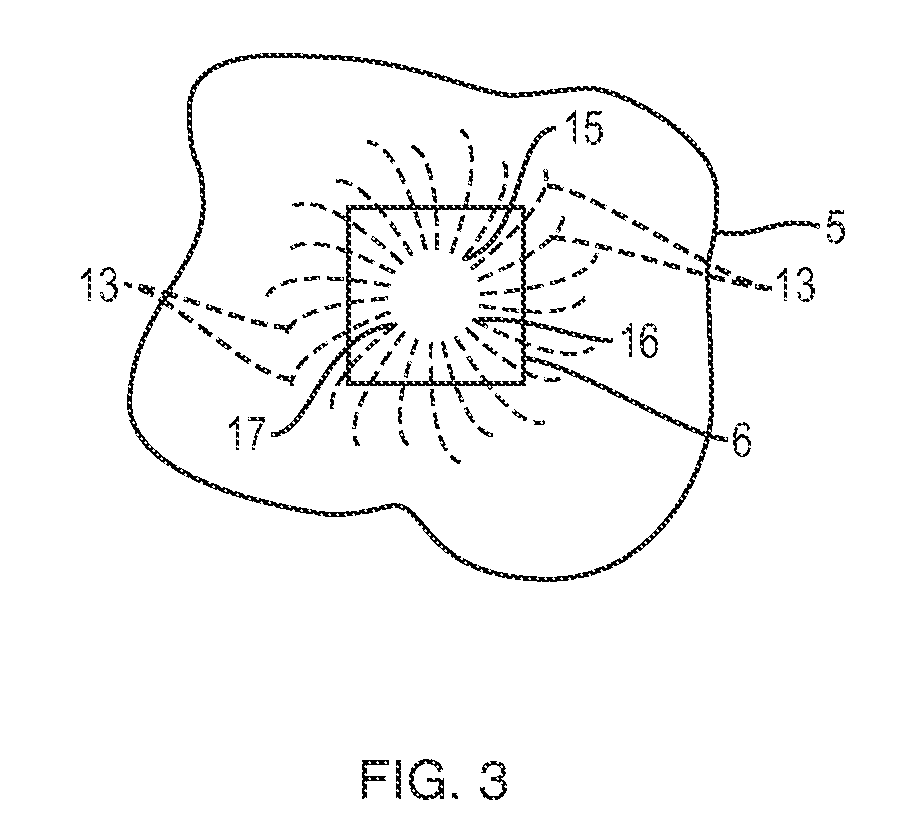Apparatus and method for controlled fluid cooling during laser based dental treatments
a laser-based dental treatment and fluid cooling technology, applied in dental surgery, tooth rinsing, medical science, etc., can solve the problems of reducing affecting the efficiency of dental tissue cutting, and fracturing the hard tissue/enamel, so as to facilitate effective dental treatment and reduce the risk of enamel melting by laser beams. , the effect of significantly affecting the efficiency of cutting dental tissu
- Summary
- Abstract
- Description
- Claims
- Application Information
AI Technical Summary
Benefits of technology
Problems solved by technology
Method used
Image
Examples
Embodiment Construction
[0034]A process is disclosed that combines a laser based dental treatment system with a controlled delivery of cooling fluid. The laser based system may be computer controlled and the coolant fluid delivery system may include an air curtain to limit the amount of cooling fluid that could interfere with the laser beam.
[0035]FIG. 1 depicts one embodiment in which a laser beam 1 emerges from a hand piece 2, which is a part of the laser treatment / cutting system 3. The laser beam can be computer controlled, and is reflected off a mirror 4 to perform the cutting operation on the tooth 5 or other tissue The user can select the geometry of the cut 6 and the depth of the cut 6. Cooling fluid 7 is directed to the tooth 5 via nozzles 8 and 9. This fluid provides both the critical cooling needed to fully control the cutting but also helps to remove the cut material from the tooth 5. A separate nozzle assembly 10 supplies an air curtain 11 that may keep the cooling fluid from splashing back into...
PUM
 Login to View More
Login to View More Abstract
Description
Claims
Application Information
 Login to View More
Login to View More - R&D
- Intellectual Property
- Life Sciences
- Materials
- Tech Scout
- Unparalleled Data Quality
- Higher Quality Content
- 60% Fewer Hallucinations
Browse by: Latest US Patents, China's latest patents, Technical Efficacy Thesaurus, Application Domain, Technology Topic, Popular Technical Reports.
© 2025 PatSnap. All rights reserved.Legal|Privacy policy|Modern Slavery Act Transparency Statement|Sitemap|About US| Contact US: help@patsnap.com



